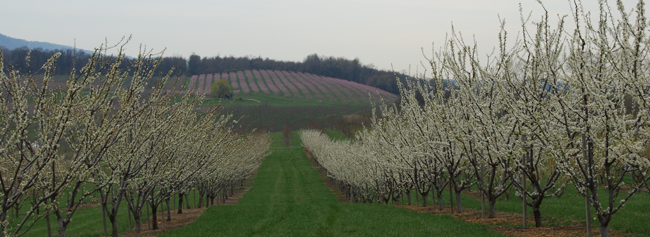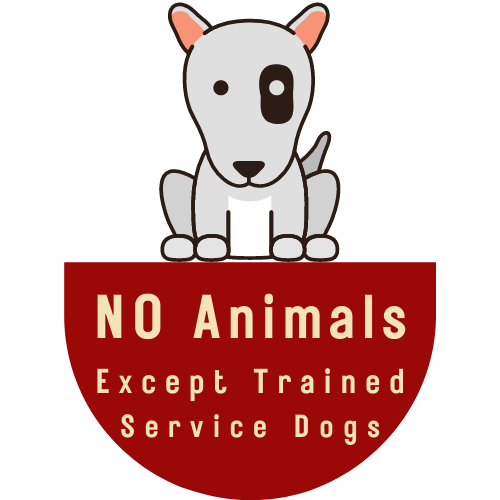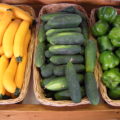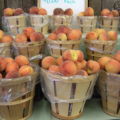Orr’s Farm Market Farming Practices
Farming for the Future
Farming has been the foundation of our family for over 60 years, but not only is it important to us, it’s crucial to the members of our community. As people with a passion for our land and the community it serves, we want to provide the most ethically sourced products from our fields.
In the world of farming today there are three big techniques: integrated pest management, no-till farming, and permaculture. At Orr’s we use “Integrated Pest Management” or IPM. In order to keep our produce healthy, we need to ensure that nature’s creatures don’t destroy any of our crops. This technique focuses on the most natural ways to maintain our farmland and its crops, spraying as minimally as possible.
How do we spray sparingly? There are a few tricks of the trade:
- Using bug traps to monitor the insect levels before spraying. If the insect number are not high enough, then we don’t spray.
- We assist with federal government studies of invasive species. This allows us and other farms to stay ahead of the curve on harmful pests.
- We use “reduced risk” pesticides, many of which are labeled organic.
- We regularly collect soil samples that give us information to keep our crops growing in the cleanest purest soils.
Our take on GMO’s
Year after year, we have centered our techniques on providing our customers with the freshest and healthiest crops. This is why we can guarantee that if it’s grown on our farm, then it’s non-GMO. Since we enjoy supporting other local small businesses, there are products on our shelf that haven’t come directly from our farm. In order to minimize any confusion, all of our products are clearly labeled with its state of origin.
There’s controversy surrounding farming practices and the use of hybrid vs. genetically modified crops(GMO). Are they good or bad for you? Should I be feeding my kids these types of foods?
We tend to find this topic often misunderstood. Hybrid crops are the result of crossbreeding between two parent crops. This does not change the genetic make-up of the crop, rather just a different variation of the intended crop. This is typically done when two parent crops have ideal genes or yields. Crossbreeding can allow you to capitalize on those yields producing strong crops in high numbers.
The term GMO is a hot topic in the farming industry that’s been discussed in great detail. GMO stands for genetically modified organisms, and this practice has been used when experimenting with crops. The practice typically takes place in a laboratory with gene splicing. For example, BT Corn is corn that has been paired with a bacteria used in a pesticide. Bio-tech companies experiment with this variation of corn to include genetic make-up that will kill the pests that eat the crop. Why would this technique be relevant in the world of farming? GMO’s reduce pesticide use while increasing food production to feed an increasing world population on less farmland. Although this is an interesting method to consider, Orr’s Farm Market does not use this technique to date.
We have put a lot of thought into the farming practices we’ve adopted. Our family lives and works on the farm, eats the produce daily, and even drinks the groundwater! The Orr family would only use farming practices that are safe for our children, our customers, and our land. Pay us a visit or give us a call today at (304) 263-1168 to get the latest information on our farm products. We look forward to seeing you at the farm!







